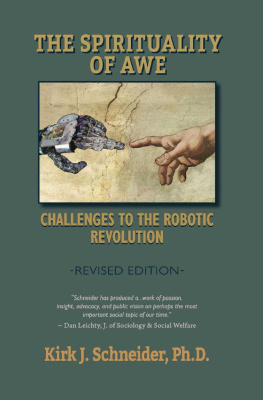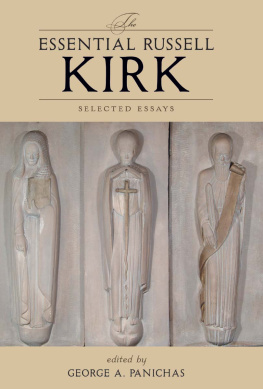Jay Kirk - Avoid the Day: A New Nonfiction in Two Movements
Here you can read online Jay Kirk - Avoid the Day: A New Nonfiction in Two Movements full text of the book (entire story) in english for free. Download pdf and epub, get meaning, cover and reviews about this ebook. year: 2020, publisher: HarperCollins, genre: Detective and thriller. Description of the work, (preface) as well as reviews are available. Best literature library LitArk.com created for fans of good reading and offers a wide selection of genres:
Romance novel
Science fiction
Adventure
Detective
Science
History
Home and family
Prose
Art
Politics
Computer
Non-fiction
Religion
Business
Children
Humor
Choose a favorite category and find really read worthwhile books. Enjoy immersion in the world of imagination, feel the emotions of the characters or learn something new for yourself, make an fascinating discovery.
- Book:Avoid the Day: A New Nonfiction in Two Movements
- Author:
- Publisher:HarperCollins
- Genre:
- Year:2020
- Rating:5 / 5
- Favourites:Add to favourites
- Your mark:
- 100
- 1
- 2
- 3
- 4
- 5
Avoid the Day: A New Nonfiction in Two Movements: summary, description and annotation
We offer to read an annotation, description, summary or preface (depends on what the author of the book "Avoid the Day: A New Nonfiction in Two Movements" wrote himself). If you haven't found the necessary information about the book — write in the comments, we will try to find it.
Jay Kirk: author's other books
Who wrote Avoid the Day: A New Nonfiction in Two Movements? Find out the surname, the name of the author of the book and a list of all author's works by series.
Avoid the Day: A New Nonfiction in Two Movements — read online for free the complete book (whole text) full work
Below is the text of the book, divided by pages. System saving the place of the last page read, allows you to conveniently read the book "Avoid the Day: A New Nonfiction in Two Movements" online for free, without having to search again every time where you left off. Put a bookmark, and you can go to the page where you finished reading at any time.
Font size:
Interval:
Bookmark:
For Julie
Alla ti e moi tauta philos dielexato thymos
H OMER
I am the absence
of field.
This is
always the case.
Wherever I am
I am what is missing.
M ARK S TRAND
F ROM THE CLIFFS, PANNING DOWN, BEHOLD THE STILLNESS of the valley in the predawn darkness. Pierced now by the northbound Montrealer. The locomotives headlight like a shot of morphine sliding through the sleepy forest canopy, a rapid wedge of illuminated treetops flying ahead like a ghostly manta ray escorting the train to its rendezvous point at the tiny depot just over the bridge where the tracks cross the dogleg of the Dog River. From our craggy outlook, also now behold a more sinuous thread of light. A car coming from the opposite direction, winding downhill, arriving at the depot just ahead of the train. A woman steps out of the car, in a thick winter coat, despite it being late July. Her driver, clearly unhappy to be playing chauffeur this early in the morning, steps forward to smoke as they wait. The woman stands by the carlets say its a 1939 Ford Deluxelooking more flamboyant or nervous would be hard to say. The driver listens to the pulse of crickets and burble of river until the volcanic approach of the locomotive obliterates the meadow and the river and everything for miles around as it comes seething into the depot. The woman hurries forward to greet a younger, clearly frantic woman helping a wispy half-dead-looking man who only groans, but with the same peculiar accent as his employer. The driver drags the luggage off the Pullman, hauling several boxes as heavy as if packed with earth. Hes used to hauling heavy things now for this woman. She actually had him haul a piano up to the second-floor guest room in preparation for this mysterious guest, even though there was already a grand piano in the downstairs parlor. The two women practically have to carry the foreign gentleman to the car where he collapses on the back seat, clutching at his shoulder in agony. And his employer snaps for him to go, to hurry, as if they were trying to beat the rising sun. As they climb back up the steep hill, past the chauffeurs own place, a barn at the bottom of the private drive, the composer looks pale and catatonic in the rearview mirror, flinching at the branches that scrape like talons against the window. Seeing the great house at the top of the hill, lit up like a riverboat on the Danube, is reminiscent to the composer of the mountain sanatoriums he had gone to since a child for a lifetime of unspecified ailments. Though, of course, the driver cannot know that. And the house is not a sanatorium. The woman, Agatha Ills (later Fassett), had bought it out of her own nostalgia for the Hungarian countryside. She hoped Bla would feel the same. She had not known him in Budapestof course she had known of the great Bla Bartk, who was a virtual myth and cult in his native land, however vaguely known herebut had only come to know him and his young second wife, Ditta, in New York, as a member of the migr community. Agatha had fled Budapest several years ahead of the Bartks, on the eve of Nazi occupation, and had helped them settle and find a furnished apartment, and in the process had become close friends with Ditta. This being the Bartks first summer as exiles, and knowing how New York rattled Herr Bartks fragile nerves, Agatha had invited them to come to Vermont. She knew Bla to be difficult, aloof, imperious, and sometimes even cruel, but she was shocked to see him in the state he had arrived. Ditta, she thought, did not seem entirely herself either. Ordinarily, it daunted her how the masters eyes seemed to look right through her, but as he entered her house now his senses seemed somehow turned perfectly inward, so that he did not appear to take in much of anything, and without uttering a wordhe had not spoken since hobbling off the trainhe went to his room and did not show his face again for two days.
After Ditta returned to the kitchen, she told Agatha how it had come on so suddenly. Just a few hours after leaving Penn Station such a change had come over him. The excruciating pain in his shoulder attacking without explanation. How he had become so panic-stricken when he couldnt move his arm at all. She said she had never seen him so frightened. He hadnt slept a wink on the train. He had writhed, in utter torment, clasping his shoulder and neck in agony until he had fallen into this awful stillness, this eerie apathy. She did not know if it was the war or the result of work. Not that he had composed anything so far in America. He was focused now on the manuscript he had been busy preparing for the past twenty-plus yearsthe ethnomusical work of peasant songs collected on his field outings in Transylvania, the pages of which he had carried all this way to Vermont in those monstrous boxes. He had still not finished transcribing and deciphering their contents. But as the songs had been the source and inspiration for his own profound transmutation as an artist, if their code remained undeciphered, the same code he had worked into his own eerie compositions, he might never fully grasp the internal meaning of his own work. Ditta only hoped this time away in the country would improve his mood and health. So far he had not been able to work in America. New York City drove him mad. She told Agatha how Bartk was at his best in nature, how he had always been at his most wholesome, his most natural self, where he could be his most real.
He did not reappear at all that day, nor the morning of the next day, nor at lunch or dinner. Once when Agatha peeked in to check on him she saw how he had managed to hang a blanket over the window to block out the light. In the gloom, the boxes sat heavily where Matthew had dumped them in a corner of the room... It was not until midnight of the second night that Agatha heard him banging on his wifes door. She came out into the hall where she heard him insisting that he heard a strange noise. Something outside his window. A voice crying... Crying out to him from the woods, he said, imploring his wife to hear it as well. Soon the housemaid, Martha, was awake, too, and appeared with a lamp. They all stood in the upstairs hall, in the sputtering lamplight, straining to hear. But the women heard nothing. He said he thought it might be a cat. The women still heard nothing, but it occurred to Agatha now that she had not seen one of her cats, a gray Persian named Lulu, in over a day.
Bartk insisted the women follow him at once.
And so Agatha, Ditta, and the housekeeper had gone stumbling through the dark, following the pale figure of Herr Bartk, in his slippers and old flannel bathrobe, tapping his cane over roots and fallen branches.
He stopped after a bit, his elegant nostrils flaring in the dark woods. He leaned on the cane, with eyes closed, studiously breathing in the night fragrance, ears pricked. Its coming at regular intervals, he said, turning his head to the side as if counting, taking in its tempo. Its as though she needed time to rest before her next cry. When the women insisted they still heard nothing, Bartk shrugged, disbelievingly, and said he supposed that meant he was stuck as their guide, since the deaf cannot lead the deaf.
And then he sprinted off again, receding into the trees, backlit by the womens dancing flashlight beams. When he paused again, turning his head this way and that, his skin glowed in the moonlight with the pallor of carbon monoxide. Only a few years earlier, when casting about for the right model for the fictional composer in his new novel, Doctor Faustus, Thomas Mann had arranged for a meeting with Bartk, noting that the Hungarians head was so translucent it looked carved from a cube of ice.
Font size:
Interval:
Bookmark:
Similar books «Avoid the Day: A New Nonfiction in Two Movements»
Look at similar books to Avoid the Day: A New Nonfiction in Two Movements. We have selected literature similar in name and meaning in the hope of providing readers with more options to find new, interesting, not yet read works.
Discussion, reviews of the book Avoid the Day: A New Nonfiction in Two Movements and just readers' own opinions. Leave your comments, write what you think about the work, its meaning or the main characters. Specify what exactly you liked and what you didn't like, and why you think so.














